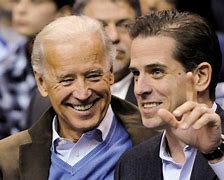Commentary
I recently commented on President Biden’s August 5, 2021 signing of an executive order outlining his target of 50 percent electric vehicle sales share in 2030.
The title, provided by the White House: President Biden Announces Steps to Drive American Leadership Forward on Clean Cars and Trucks (emphasis is mine) couldn’t be clearer, as the order outlines the investment in the infrastructure, manufacturing, and incentives needed to lead on electric vehicles around the world.
How many venture capitalists have the advantage of control over agencies that can affect success? Venture capitalist Biden has ordered the EPA and the DOT to establish fuel efficiency and emissions standards.

(Daily Caller)
“Paired with the investments in the President’s Build Back Better Agenda,” the White House states that “these new actions will strengthen American leadership in clean cars and trucks by accelerating innovation and manufacturing in the auto sector, bolstering the auto sector domestic supply chain, and growing auto jobs with good pay and benefits.
“This is why American automakers Ford, GM, and Stellantis and the UAW will stand with (Capital Venturist) President Biden with an aligned ambition.”
Last month, the Department of Commerce announced $3 billion in available American Rescue Plan funds that can be used to advance the domestic electric vehicle industry.
The 2030 target for 50 percent electric vehicle sales is “more than a deployment target,” according to the White House, “it is a goal to leverage once-in-a-generation investments and a whole-of-government effort.”
Seriously, what venture capital firm wouldn’t salivate over this advantage?
Before this can happen, however, the administration’s massive infrastructure legislation has to get passed. Without the billions of dollars in it to build a network of electric vehicle charging stations and provide tax incentives to consumers, automakers will be unable to comply.
While the automakers will benefit from the charging stations, little has been written about firms in the charging station business that will benefit by Biden’s 2030 dream. Will EVgo become a government “winner?”
While the administration touts all of the benefits electric cars will provide – less gasoline and the reduction of carbon pollution by some outrageous number of metric tons – it’s interesting how it avoids mentioning the loss of lucrative maintenance work on fossil-fuel engines. Don’t think auto dealers aren’t concerned.
Meanwhile, Biden is behind the requirement to raise fuel efficiency to the equivalent of 52 miles per gallon by the 2026 model year, with an aim to stop the manufacture of fossil-fueled cars.
Don’t forget … hidden in that near 3,000-page infrastructure bill is a plan to charge you for miles driven. I know, it’s a pilot test, but … This will hit those of you in rural areas where you drive more miles. It’s the plan to recover fuel taxes not paid by those with electric cars. Essentially, owners of fossil fueled cars will pay increased taxes to make up for the taxes no longer paid by those driving electric cars.
Regular readers will recall my regular chastising of automakers for being weak-kneed on Café standards. Let the consumer decide what they want in a vehicle.
So, now Biden is back into picking winners and losers again. He didn’t learn from the “investment” in Solyndra. And who can forget the auto bailouts of 2008?
The government simply should not be in the business of deciding which firms fail and which ones succeed. That’s best left to market forces.
The free-ride for automakers and charging station firms at taxpayer expense must be removed from the infrastructure bill.
Now, more than ever … may God continue to bless the United States of America.





